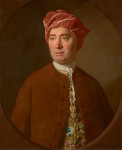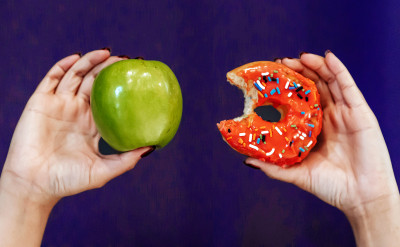Inspector Lestrade: “We’re obviously looking at a suicide. It does seem the only explanation of all the facts.”
Sherlock: “Wrong. It’s one possible explanation of some of the facts. You’ve got a solution that you like, but you are choosing to ignore anything you see that doesn’t comply with it.”
Contents
1. Win any argument
2. Reason – it’s not as good as you think
3. Processed truth with additives vs. “the real thing”
4. How not to fool yourself
_________________
1. Win any argument
Winning any argument is simple: you just need to be better at arguing than your opponent. But if that’s true, then arguing only shows who’s better at arguing, not what’s right or what’s true . Watch politicians or political debates if you still have any doubts.  So, if you’re clever enough you can convince yourself that you’re right too – sometimes called the intelligence trap. Whilst self-satisfying (arrogant?) it leads to self-delusion and perhaps to a career in politics.
So, if you’re clever enough you can convince yourself that you’re right too – sometimes called the intelligence trap. Whilst self-satisfying (arrogant?) it leads to self-delusion and perhaps to a career in politics.
Other people are likely swayed by your charismatic and impressive ability to argue. But, to repeat, that’s little to do with what’s true or right. So, the cleverer you are, the more likely you are to fool yourself (and others). No wonder our collective decision making is so poor. We are too easily influenced by the power of argument and charisma, vote for one choice over others. And it saves us from having to think about it ourselves, all we have to do is believe what sounded good to us.
2. Reason – it’s not as good as you think
Surely logic, reason, facts and ‘science’ aren’t so easily manipulated are then? What’s going on?
Arguing – that is using reason and logic – is far less effective at finding out who’s right than we’re told – especially in the complicated world of everyday reality with all its opinions, partial information, lies and confused issues. Yes, we can use reason and logic to help us, but like guns they depend so much on the motivations of the people using them. Or like shining a laser to illuminate a dark scene, it’s too dependent on where you choose to point and on who is doing the pointing. Reason is very sharp, but very narrow. Magicians fool us with magic tricks by directing our attention to an inconsequential detail, thus allowing the “trick” to take place in plain sight. Reason is good at that too.


Some of the “big” names in the field have said the same thing in different ways, for example:
David Hume: “Strict proof plays no part in human life outside of mathematics… rational demonstration is powerless in the face of some of the most elementary realities”.
Bertrand Russell: “In many respects we still have not got beyond Hume”
and so many others.
3. Processed truth with additives vs. “the real thing”
As hinted, you’re likely aware of this already from watching politicians, journalists and pundits who seem to get away with anything: always with strong opinions and certainty; always able to evade responsibility. They insist they are right – at least they seem to believe it themselves, which is why we find it hard to trust them. Multinational companies commission scientific research to get the results they want, or they demand strict proof from objectors, when strict proof just isn’t a logical possibility (Hulme again). Actually that field – deliberate manufacturing of doubt and ignorance – has its own name: “Agnotology”.
Science itself has the same problem. If a pet theory fails, it can always be claimed that better equipment was needed, and always that “more research is necessary”.
 Real or organic truth though is motivated by the quest for reliable knowledge about the world for the purpose of making better decisions and acting wisely. In contrast, processed truth is more like genetically modified, or additive laden processed foods but aren’t any good for us: tasty, cheap, and attractive though they might be.
Real or organic truth though is motivated by the quest for reliable knowledge about the world for the purpose of making better decisions and acting wisely. In contrast, processed truth is more like genetically modified, or additive laden processed foods but aren’t any good for us: tasty, cheap, and attractive though they might be.
All this reality can be a shock for trainee researchers who, after all, are supposed to be learning how to get at what’s true in complicated fields.
4. How not to fool yourself
Richard Feynman (the physicist labelled “no ordinary genius”) put it this way: “The first rule is not to fool yourself… and you are the easiest person to fool”.
 So, if you want to, or if say you’re training to be a scientist (PhD for example) you can learn to do better. You can use the gun or laser beam of reason more wisely, to see more clearly rather than to manipulate. That’s an important start if we want to understand the world, and therefore make better decisions.
So, if you want to, or if say you’re training to be a scientist (PhD for example) you can learn to do better. You can use the gun or laser beam of reason more wisely, to see more clearly rather than to manipulate. That’s an important start if we want to understand the world, and therefore make better decisions.
So how do we stop fooling ourselves? Here are a few directions:
- One is to understand how ‘reason’ works, and its limits, so we’re not bedazzled by it, or by charismatic people pretending to know what they’re talking about (don’t look into a laser beam). It’s as easy to be fooled by reason, as by blind faith.
- Two is to realise that feeling ‘certain’ that we’re right, is just that, only a feeling.
- Three is to practice being wrong – just to get used to how that feels.
There’s ‘knowing’ and then there’s ‘knowing’. As an ancient sage put it “To know, is to act accordingly”. We all say we know these things already, but do we actually behave as though we do? And maybe it’s more clear recently that figuring out what’s actually going on is difficult but important for all of us, not just in research laboratories.
The task is to see more clearly; accept uncertainty and doubt; yet not be paralysed by indecision. Because then we can make decisions we don’t regret.
Adrian West
